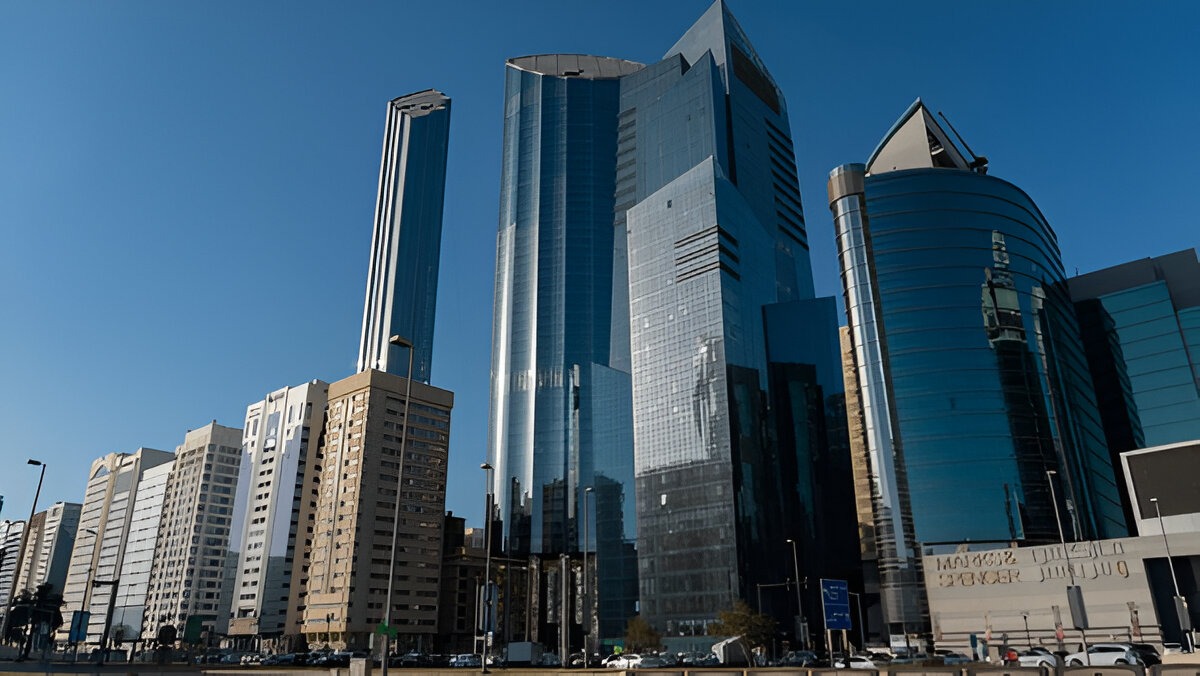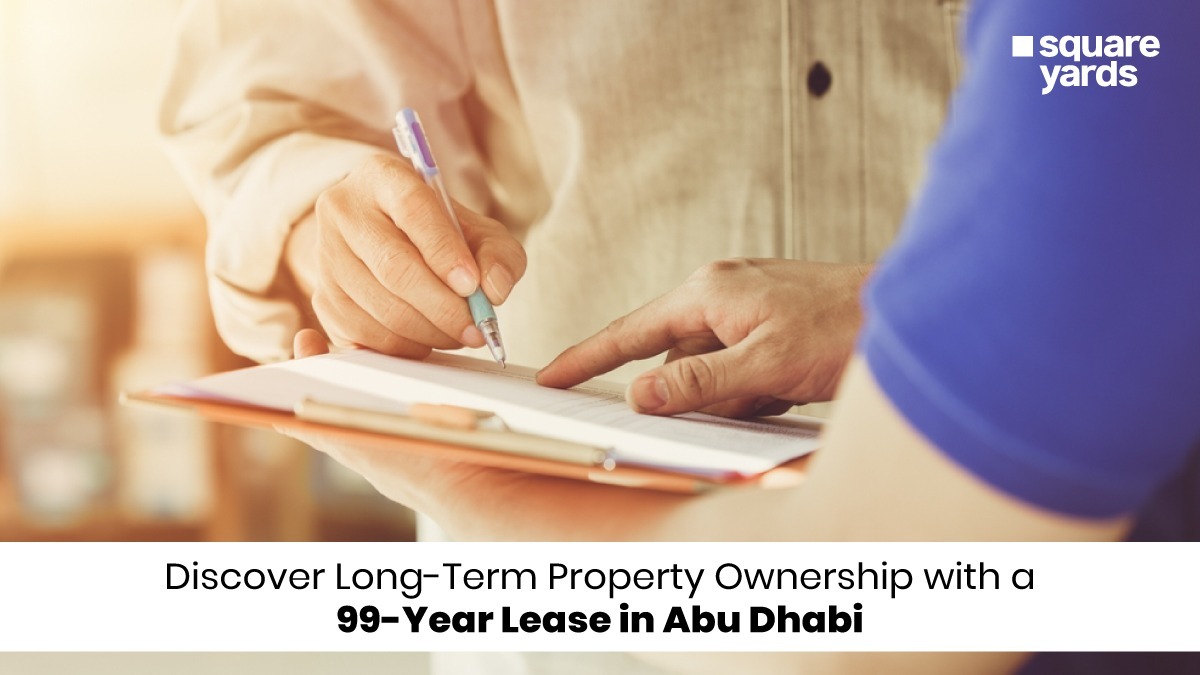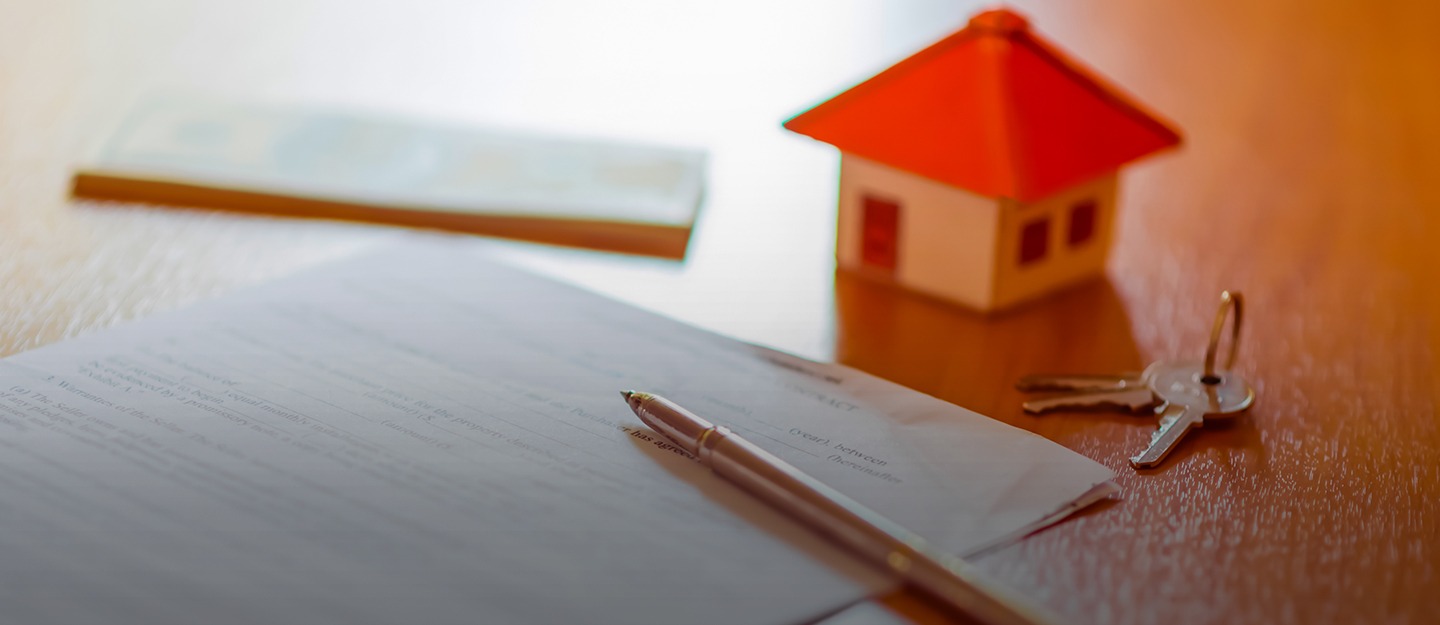A 99-year lease in Abu Dhabi permits ex-pats to own property (excluding land) for up to 99 years. Under this 99-year lease agreement, the property can be used, sold, or transferred, while the land ownership remains with a trust or Owners Association (OA). This agreement provides long-term security for expats at a lower cost than freehold properties, especially in designated investment zones. Understanding the 99-year lease in Abu Dhabi guidelines and the variations between leasehold vs freehold is important.
However, there are potential challenges, such as uncertainties surrounding 99-year lease renewal and the risk of property value depreciation as the lease nears expiration. Understanding the 99-year lease requirements is crucial in comparing the benefits of leasehold and freehold properties before investing.
Know About Expatriate Regulations for Buying a Property in Abu Dhabi

Expatriates in Abu Dhabi have unique legal property ownership opportunities, although they are normally prohibited from owning land. The following are the main systems available:
-
Ownership by 99-Year Lease in Abu Dhabi
Expatriates in Abu Dhabi can obtain property through a 99-year lease, which allows them to possess an apartment or villa but not the land. This long-term 99-year lease agreement grants the right to use, sell, and transfer the property, which a trust or Owners Association normally controls. The property is classified as a 99-year lease, ensuring security and flexibility over the lease time.
-
Musataha Agreement
The agreement allows expats to lease land for 50 years, with the option to renew for another 50 years. Moreover, the right to construct, modify, or develop the property is granted during the lease duration. Musataha agreements are often shorter than 99-year leases but provide comparable benefits to 99-year lease property owners in Abu Dhabi.
-
Usufruct Agreement
Under the Usufruct agreement, expatriates can enjoy and use a property for 99 years but do not have the right to make structural changes. Furthermore, this system provides property rights without land ownership. It is the same as a 99-year lease but with stricter modification limitations.
-
Long-Term Lease
This option offers a minimum lease term of 25 years that can be extended based on the parties’ agreement. The long-term lease provides flexibility but may have different conditions than a 99-year lease in Abu Dhabi, especially concerning ownership rights and land use.
-
The 2019 Amendment
A significant change to Abu Dhabi’s real estate rules in 2019 permits non-UAE nationals to acquire property. These are only allowed in designated investment zones, including land. This reform expands expats’ ability to invest in property with complete ownership rights in specified locations. Moreover, it provides a greater choice of options beyond the 99-year lease in the Abu Dhabi system.
Expatriates can now acquire 99-year lease property in designated zones, and, in some situations, they can obtain complete land ownership as well. Previously, these zones were only accessible through 99-year lease agreements. The change broadens the options for expatriates wishing to invest in a 99-year lease or explore options such as freehold ownership.
-
Locations in Abu Dhabi Where Expatriates Can Own Property
Expatriates in Abu Dhabi can now own property in specified investment zones according to law revisions that allow foreign ownership in specific regions. The following are significant areas in Abu Dhabi where ex-pats can invest in real estate:
- Yas Island
- Saadiyat Island
- Reem Island
- Mariya Island
- LuLu Island
- Al Raha Beach
- Sayh Al Sedairah
- Al Reef
- Masdar City
Consequences of the 99-Year Lease in Abu Dhabi
A 99-year lease in Abu Dhabi has several consequences. These include –
-
Ownership Reversion
Upon expiration of a 99-year lease in Abu Dhabi, the property reverts to the Owners Association (OA) or the landowner, depending on the lease agreement.
-
Renewal Challenges
The potential renewal of the 99-year lease agreement involves negotiations that may not always favor the lessee. Thus, understanding how to get a 99-year lease renewal is essential.
-
Uncertainty in Property Value
As the lease term nears its end, the leased property may depreciate, creating uncertainty for owners and prospective buyers.
-
Impact on Expats’ Investments
While expatriates initially enjoy stability and affordability through a 99-year lease in Abu Dhabi, the aftermath may involve challenges in retaining or renewing property rights.
-
Complexity of Reacquisition
Post-expiry, reacquiring property rights under the 99-year lease in Abu Dhabi requirements can become complicated and uncertain.
-
Market Hesitation
Due to limited ownership tenure, properties with shorter remaining 99-year leases in Abu Dhabi may experience reduced buyer interest.
-
Importance for Investors
Those considering long-term investments in 99-year lease property systems in Abu Dhabi must weigh these consequences carefully to make informed decisions.
Advantages and Disadvantages of 99-Year Lease
Here is a list of important advantages and disadvantages of a 99-year lease in Abu Dhabi:
Advantages
|
Advantages |
Details |
|
Long-term property rights for expatriates |
A 99-year lease in Abu Dhabi provides stability without frequent renewals. |
|
Lower upfront investment |
The 99-year lease agreement makes property investment more accessible for expatriates. |
|
Access to restricted zones |
It allows expatriates to buy property in designated zones like Yas Island, Saadiyat Island, and Al Raha Beach. |
Disadvantages
|
Disadvantages |
Details |
|
Declining property value toward lease expiry |
Property value may decrease as the lease term shortens, discouraging buyers. |
|
Restrictions on property modifications |
Some 99-year lease agreements may limit the owner’s ability to alter or modify the property. |
|
Challenges with lease renewal |
Renewing a 99-year lease post-expiry may require negotiations and may not always be favourable. |
Conclusion
This allows expatriates to invest in property with long-term security and affordability, though it excludes land ownership. As the lease expires, ownership may revert to the landowner or OA, causing uncertainties. Despite this, 99-year lease property is appealing in designated zones. Investors should assess its pros and cons and seek professional advice.
Similar Suggestions For You:
|
Know Rental Dispute Settlement Committees |
|
|
Licensing Changes for Abu Dhabi Realtors |
|
|
Understand Property Valuation Certificate in Abu Dhabi |
|
|
Process To Change Property Ownership In Abu Dhabi |
Frequently Asked Questions (FAQ’s)
Yes, you can sell a 99-year leasehold property in Abu Dhabi, transferring ownership of the property (excluding the land) during the lease term.
When the 99-year lease expires, the property reverts to the Owners Association (OA) or landowner, with possible renewal negotiations for an extended lease term.
While there may be no land taxes, you’ll generally have to pay property taxes, maintenance fees, and renewal costs at lease expiration. Review the agreement for specifics.
When buying a 99-year leasehold property, consider the expiration impact, lease renewal terms, maintenance costs, and the fact that you don’t own the land. Ensure the property is in a designated investment zone for expatriate ownership. Can I sell a 99-year leasehold property?
What happens when the 99-year lease expires?
What are the property taxes and fees associated with a 99-year lease?
What should I consider when buying a 99-year leasehold property?





